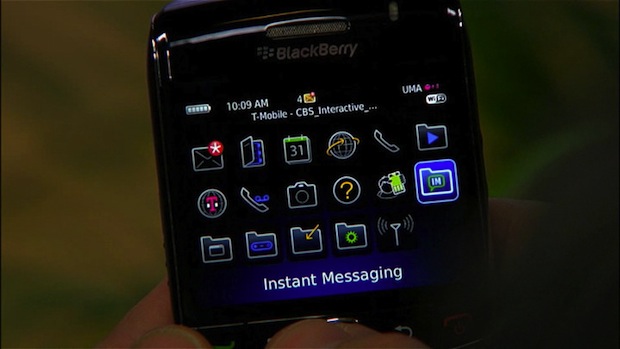RIM considers splitting into two: report

Research In Motion (RIM) is considering splitting itself in two, according to a paywalled story by London's The Sunday Times.

(Credit: CNET)
The BlackBerry maker could see its struggling smartphone hardware sold off, and its data network retained or licensed to others.
RIM is expected to announce an operating loss for its first quarter. Since then, its stock price has dropped significantly, and, for a short while, dipped below US$10 per share.
The newspaper cited Amazon and Facebook as possible buyers of the hardware business at a knocked-down price.
Interestingly, Facebook has repeatedly denied that it has a smartphone in development. Amazon has fringed on the tablet scene with its range of e-readers and its Android-powered Kindle Fire, but has shown no apparent interest in engaging with the smartphone market for now.
Without citing sources, the paper said that the company's data network and BlackBerry Messenger software would likely be opened up to smartphone rivals, such as Apple or Google. It's also possible for the company to retain hold of its data-offering infrastructure and license it out to others, such as Android vendor Samsung.
RIM chief executive Thorsten Heins said in May, announcing the likelihood of an operating loss on deck, that the company will "evaluate the relative merits and feasibility of various financial strategies, including opportunities to leverage the BlackBerry platform through partnerships, licensing opportunities and strategic business model alternatives".
Or, failing that, the company could remain as one, and be sold in its entirety, such as to Microsoft.
In a nutshell, RIM isn't looking for an all-out buyout, and would rather separate, split and sell off sections as and when it needs to.
The report said that RIM could announce such plans at some point soon.
Splitting the company into two divisions could be dangerous. BlackBerry smartphones require the data network for email and browsing, while RIM's data network is all but completely worthless without BlackBerry phones.
Those thinking back not so long ago will no doubt remember that smartphone maker Palm met an eerily similar set of circumstances.
In the mid-2000s, Palm Computing voluntarily split in two, which then became PalmOne, which created Palm-related hardware, while PalmSource developed operating system software. PalmOne changed its name back to Palm Inc in 2005, while later that year PalmSource was acquired by Access.
HP bought Palm in 2010 for US$1.2 billion in cash, following dwindling sales. After a series of failed CEO transitions and poorly executed management strategy, HP as a whole company suffered financially. A year later, the PC maker said it would cease production on anything Palm related.
Had Palm carried on as a separate company without HP's buyout bid, the current duopoly of smartphone behemoths notwithstanding, the company may have had a shot had it continued to compete in the market-share race.
If history is to be our guide, RIM could be facing a similar downfall.
If RIM splits into a data network and a hardware company, the hardware side under a different owner could eventually run Android or even Windows Phone software, and would not have to be limited to BlackBerry 10.
Where that leaves RIM's forthcoming operating system — which the company has invested so much into — remains unclear.
Via ZDNet US